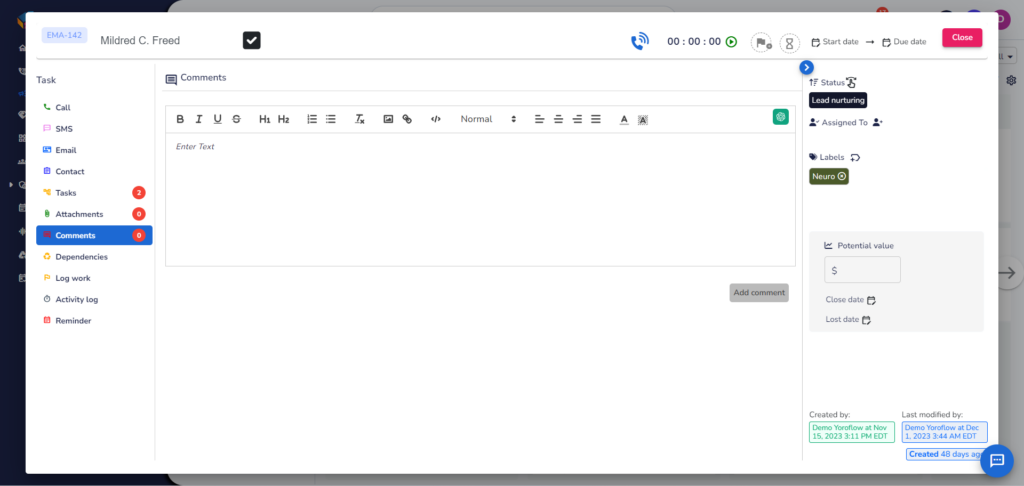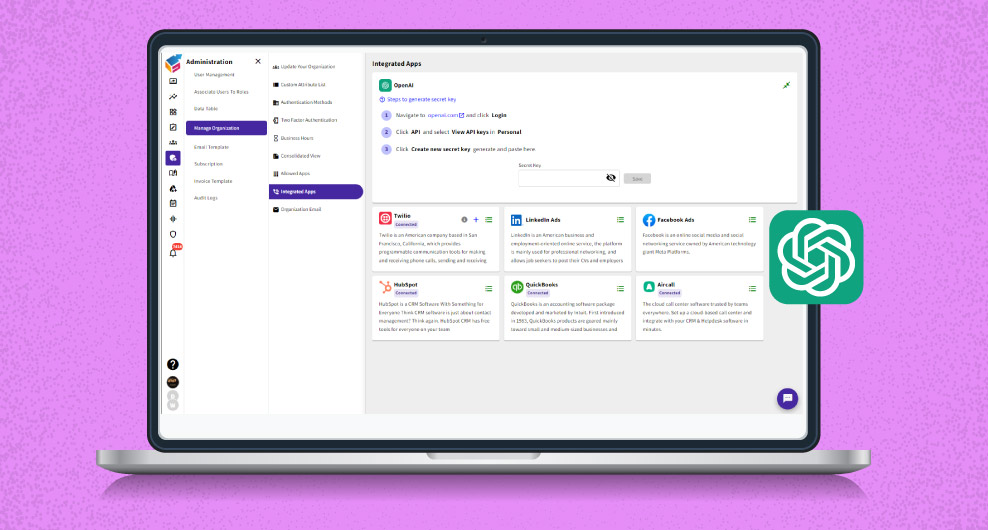Table of Contents
In today’s fast-paced digital era, businesses are constantly seeking innovative ways to enhance customer experience and build lasting relationships. One such technology that has gained immense popularity is chatbots. These intelligent conversational agents not only streamline communication but also play a pivotal role in fostering customer love.
Let’s explore the top 10 chatbot features that can elevate your customer experience and leave a lasting impression.
10 Chatbot features
- Personalization: Customers appreciate a personalized touch. Implementing a chatbot that can remember past interactions, preferences, and purchase history allows for tailored conversations. Personalized greetings and recommendations create a more engaging and enjoyable experience for customers, making them feel valued.
- Natural Language Processing (NLP): Effective communication is key. Advanced NLP capabilities enable chatbots to understand and respond to natural language, making interactions more human-like. This feature ensures that customers can communicate with the chatbot in a conversational manner, enhancing the overall user experience.
- Multichannel Integration: Meet your customers where they are. A versatile chatbot that seamlessly integrates with various communication channels, such as websites, social media, and messaging apps, ensures that customers can interact with your business using their preferred platform. This flexibility contributes to a more convenient and accessible experience.
- 24/7 Availability: Customers want instant gratification. A chatbot that operates 24/7 ensures that customers can get assistance or information at any time. This round-the-clock availability not only meets customer expectations but also enhances your brand’s reliability and responsiveness.
- Proactive Engagement: Anticipate needs and provide solutions. Proactive chatbots initiate conversations based on user behavior, offering assistance or relevant information before the customer even asks. This feature demonstrates a commitment to customer satisfaction and can lead to increased engagement and loyalty.
- Integration with CRM Systems: Seamless information flow is essential. Integrating chatbots with Customer Relationship Management (CRM) systems allows for real-time access to customer data. This ensures that the chatbot can provide personalized assistance and retrieve relevant information, creating a more cohesive and efficient customer experience.

- E-commerce Integration: Simplify the buying process. Chatbots integrated with e-commerce platforms can guide customers through the purchase journey, answer product-related queries, and facilitate transactions. This feature streamlines the buying process, contributing to a positive and frictionless customer experience.
- Data Security and Privacy: Build trust through security. Ensuring the security and privacy of customer data is paramount. Implement robust security measures to protect sensitive information and communicate these measures transparently. Building trust in data handling fosters a positive customer perception.
- Feedback and Improvement Mechanism: Continuous improvement is key. Incorporate features that allow customers to provide feedback on their chatbot interactions. Analyzing customer input helps in refining the chatbot’s responses, addressing pain points, and continuously improving the overall user experience.
- Human Handoff: Know when to bring in human assistance. While chatbots are adept at handling routine queries, there are situations where human intervention is necessary. Implement a smooth transition from chatbot to human support when needed, ensuring that customers receive the personalized assistance they require.
Why does your business need an AI Chatbot?
Implementing an AI chatbot can bring several benefits to a business, enhancing customer interactions, improving operational efficiency, and contributing to overall business success. Here are some reasons why a business might need an AI chatbot:
- 24/7 Availability: AI chatbots can operate 24/7, providing around-the-clock support to customers. This is particularly valuable for businesses with a global customer base or those in industries where customers may need assistance at any time.
- Instant Responses: Chatbots can deliver instant responses to customer queries, improving response times and overall customer satisfaction. This quick interaction can be crucial in retaining customers and keeping them engaged with the business.
- Cost Savings: Implementing a chatbot can lead to cost savings by automating routine and repetitive tasks, allowing human agents to focus on more complex and high-value activities. This efficiency can lead to reduced operational costs over time.
- Scalability: As the volume of customer inquiries increases, a chatbot can handle a large number of simultaneous interactions without a proportional increase in resources. This scalability is beneficial for businesses experiencing growth or fluctuations in demand.
- Enhanced Customer Engagement: Chatbots can provide personalized and interactive experiences, leading to increased customer engagement. By understanding user preferences and behavior, chatbots can offer tailored recommendations and information.
- Lead Generation and Conversion: Chatbots can assist in lead generation by qualifying leads, collecting contact information, and guiding potential customers through the sales funnel. They can also facilitate online transactions, contributing to increased conversion rates.
- Customer Support and Issue Resolution: Chatbots can handle routine customer support queries, providing instant solutions to common problems. For more complex issues, chatbots can assist in gathering relevant information before transferring the conversation to a human agent for resolution.
- Data Collection and Analysis: Chatbots can collect valuable data on customer interactions, preferences, and behavior. This data can be analyzed to gain insights into customer needs, enabling businesses to make informed decisions and improve their products or services.
- Consistent Brand Messaging: AI chatbots ensure consistent communication by delivering standardized responses based on predefined scripts. This helps maintain brand consistency and ensures that customers receive accurate and reliable information.
- Competitive Advantage: Implementing AI chatbots can give a business a competitive edge by showcasing a commitment to innovation and customer service. Businesses that leverage technology to enhance customer interactions are more likely to stand out in the market.
- Adaptability to Multiple Channels: AI chatbots can be integrated into various communication channels, including websites, messaging apps, and social media platforms. This adaptability ensures a seamless and unified customer experience across different platforms.
- Employee Productivity: By automating routine tasks, chatbots free up human employees to focus on tasks that require creativity, problem-solving, and emotional intelligence, ultimately improving overall employee productivity and job satisfaction.
In summary, an AI chatbot can be an asset for a business, providing benefits such as improved customer service, cost savings, scalability, and enhanced engagement. However, it’s important to carefully plan and implement the chatbot to align with the specific needs and goals of the business.
Conclusion
Incorporating these 10 chatbot features into your customer service strategy can significantly enhance customer love and satisfaction. By providing personalized, efficient, and secure interactions, your chatbot becomes an asset in building lasting relationships with your customers. Embrace the power of these features, and watch as your customer experience reaches new heights, fostering loyalty and advocacy for your brand.




